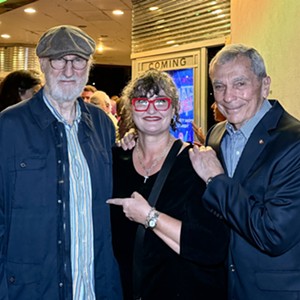DURING this extremely trying time, mental and emotional health are as important as physical health, and will potentially become even more so.
As “social distancing” and mass shutdowns persist and increase, depression, loneliness, and feelings of profound despair will spawn and spread like a virus themselves.
People can’t even seek solace in houses of worship anymore.
Not even the basic comfort of human touch is encouraged — a handshake, a hug among friends, a gentle hand on the shoulder of an elderly relative.
As workers are laid off, owners lose their small businesses, and families see loved ones get sick and savings deplete, some people will have thoughts of suicide.
Many will act on those thoughts.
Some people will cry out.
Some will act out.
Others will feel the pain just as intensely, but will shut down, turn within, and refuse to communicate.
Either way, the pain of loneliness and despair is the same.
As long as people and governments do the right thing to fight the spread of COVID-19, the medical situation will inevitably improve -- though unfortunately not all government officials seem on board with the effort.
As the situation very gradually improves, we will be left with the psychological, spiritual, and economic scars for some time to come. Healing those scars will take time as well
A recent estimate is that the unemployment rate from this crisis might hit 30 percent. At the height of the Great Depression nearly 100 years ago, the unemployment rate peaked at 24.9 percent.
We have yet to truly feel these effects. The breaking news keeps breaking, and it’s hard to keep up.
We go through phases very quickly these days. One of the first phases was pledging earnestly to support local businesses as they entered various phases of lockdown — a noble goal, to be sure, and one I enthusiastically participated in myself.
Soon, however, that option will be mostly gone for the indefinite future, as most places will simply not be open anymore, at any level of service.
Then there was the phase of pleasantly remarking on how many people are out walking their dogs, riding their bikes, and enjoying the weather, with much less to do and no after-school activities to take away from family time.
That welcome bliss, unfortunately, could wear off as it hits home that this “leisure time” we all have now is not a vacation — though sometimes it might feel like one — but rather a dire economic shutdown in progress.
I think we’re still in a phase of feeling blessed at the way many people are indeed coming together to make the most of these strange and restrictive circumstances — for example the Quarantine Concerts that Sean writes about in this issue, or the livestreamed church services and talks by the Rev. Ben Gosden and other local clergy.
One can’t help but be moved at the videos from Italy and Spain of quarantined people singing together from their balconies, or coming out at the same time each evening to applaud healthcare workers for another day’s work.
But that wonderment — such a crucial act of social bonding right now — could give way to frustration and panic as the rent or mortgage comes due April 1, and there’s no light at the end of the tunnel and little relief from Washington or Atlanta.
The term “social distancing” caught on quite quickly — perhaps too quickly.
Meme and hashtag-ready, the phrase has already entered pop culture canon as both a source of comfort and of humor.
However, I don’t think it’s necessarily a healthy term.
Really, it’s not the socialization that should be distant.
I’m not the first person to say this — I heard it mentioned first on NPR’s “It’s Been a Minute,” a great show by the way — but a much more accurate thing to encourage would be distant socializing.
Because literally the last thing we need right now is to be socially distant.
Physically, yes. But it’s more important now than ever to be socially conscious, socially vibrant, socially connected.
We will continue to do that at Connect Savannah as long as we are able. We don’t have the answers any more than anyone else does, and we find ourselves in many of the same predicaments you do.
In this issue you’ll find more of our continuing focus on encouraging solidarity and positivity in the community we love and hope to serve as best as possible.
But despite the lighting-fast development and spread of the COVID-19 virus, and the literally hour-by-hour response of local governments and agencies, we will all soon enter a phase that is more akin to brutal, grinding trench warfare.
We must resist cynicism and complacency.
We must resist the urge to give up on each other.
We must be able to not only summon the justified outrage and will necessary to change our dysfunctional and inequitable system to make it serve more of us, more effectively and compassionately — we must summon deep reserves of empathy.
If your motto has been “only the strong survive,” perhaps you should consider changing it to “the strong help the weak survive.”
We must resist the attempt to be literally “socially distant,” and socialize distantly instead — and be able to understand the difference.
Our world depends on it.



























